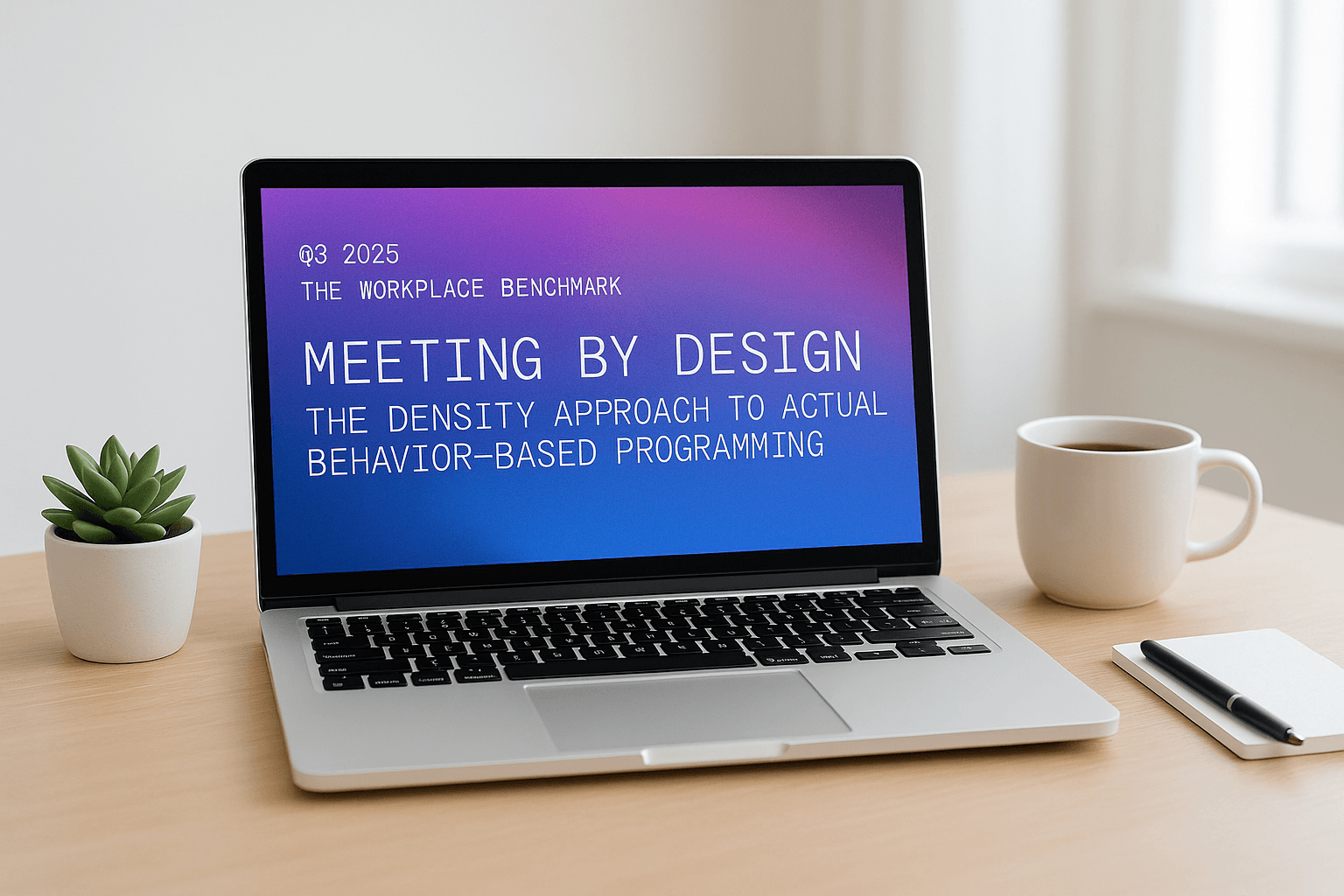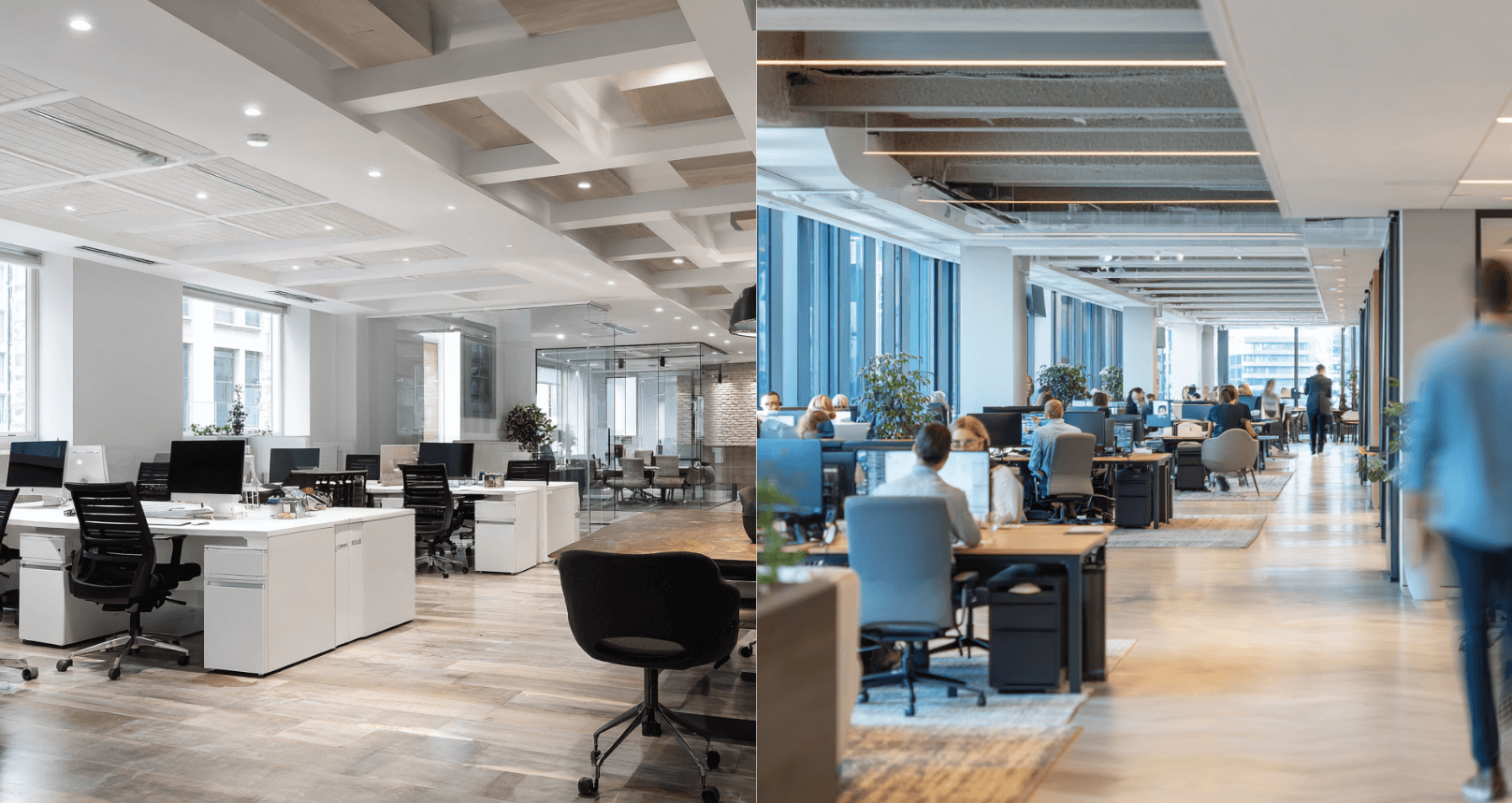Density CEO Andrew Farah at Axios What's Next Summit
Density CEO Andrew Farah spoke at the Axios “What’s Next” summit about the future of sensor technology and the importance of privacy for utilization data.

Density co-founder and CEO Andrew Farah spoke at the Axios “What’s Next” summit about the future of sensor technology, its potential when deployed on a city-wide scale, and the importance of privacy when collecting utilization data. Below are a few takeaways from the conversation.
There are hundreds of millions of square feet of space in the workplace that are completely unmeasured. What if we could measure all those millions of square feet?
"I think, largely, everything would change,” Density CEO Andrew Farah says. “Energy use would change, access would change, physical design of the space itself would change, and ultimately it would end in the modified skylines of cities.”
At Density, we have always believed that if, for example, New York City all of a sudden knew how it was used, it would identify its inefficiencies and redesign itself. An entire city reliably knowing how it was used would unlock a world of new possibilities.
But with measuring all this space comes concern over employees’ reasonable expectation of privacy.
We recently surveyed more than 1,000 employees to understand what they see as the benefits and challenges of hybrid work. Privacy was ranked by employees as the number one feature of the smarter workplace.

Nearly 60% of all respondents said they’d feel uncomfortable in the workplace if employers used camera-based technology to monitor utilization.
“I think if we’re not careful… this sort of massive acceleration in investing in new infrastructure for buildings and cities can result in [an accidental surveillance state],” Andrew says. "That is not a world I would like to live in."
Watch Andrew’s full conversation above.
Key Takeaways

DisruptCRE founder shares how corporate real estate is changing
Companies are moving employees from underutilized offices into "space as a service” options with utilization data.
Watch now
Half of offices are empty but you still can’t find a meeting room
Employees waste up to 30 minutes a day looking for a meeting room to meet in workplaces.
Read moreMost recent

Meeting space playbook: programming ratios that really work
Forget static formulas. This new research-driven playbook shows how to use real behavior to right-size your office for today’s meetings.

Space waste: The industry’s naughty and nice list
Our sensors spilled the beans: What industry is winning, who's wasting and who's hogging your office real estate.
.png)
Improve your occupancy sensor RFP with our best practice guide
Discover essential questions to simplify your occupancy sensor RFP process and confidently choose the right vendor.
.png)
Room raiders: The office upsizing epidemic
Tiny teams hogging big rooms leave large groups stranded—welcome to the new war for meeting space!
Explore other Density Products
Atlas for Workplace
Insights for the workplace that help you cut costs and deliver better spaces.
Learn more